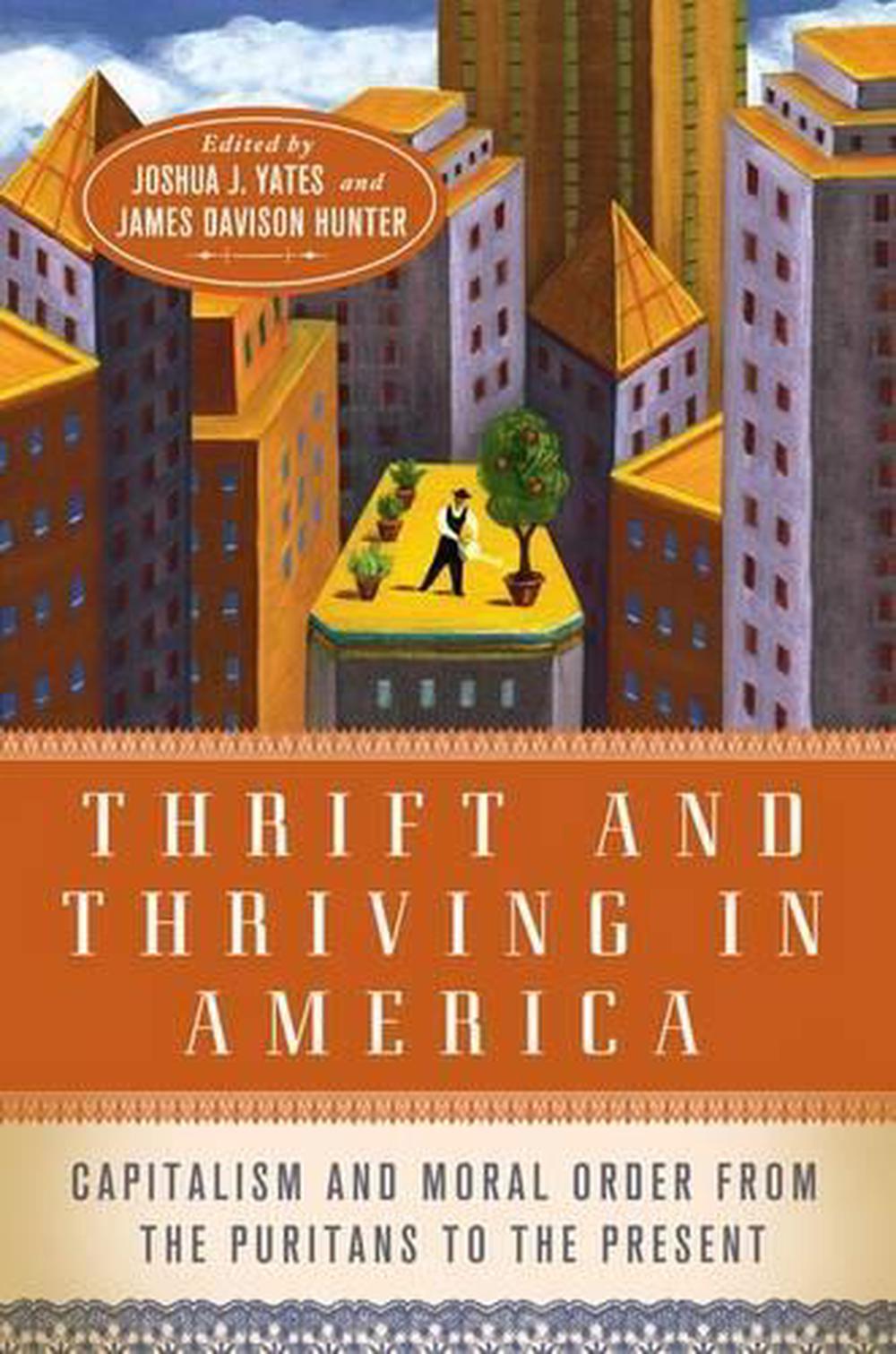
Thrift and Thriving in America
capitalism and moral order from the puritans to the present
- Hardcover
640 pages
- Release Date
11 August 2011
Summary
Thrift is a powerful and evolving moral ideal, disposition, and practice that has indelibly marked the character of American life since its earliest days. Its surprisingly multifaceted character opens a number of expansive vistas for analysis, not only in the American past, but also in its present. Thrift remains, if perhaps in unexpected and counter-intuitive ways, intensely relevant to the complex issues of contemporary moral and economic life.Thrift and Thriving in America is a collection …
Book Details
| ISBN-13: | 9780199769063 |
|---|---|
| ISBN-10: | 0199769060 |
| Author: | Joshua Yates, James Davison Hunter |
| Publisher: | Oxford University Press Inc |
| Imprint: | Oxford University Press Inc |
| Format: | Hardcover |
| Number of Pages: | 640 |
| Release Date: | 11 August 2011 |
| Weight: | 953g |
| Dimensions: | 236mm x 163mm x 51mm |
You Can Find This Book In
What They're Saying
Critics Review
“Thrift is sometimes taken to be the most obvious and boring of the virtues. But that is only because we rarely stop to think about it, or are content to honor it-if we honor it at all-with words rather than deeds. These fascinating essays should challenge such complacency. They have the same effect on the reader that Socrates’ relentless inquiries had on his interlocutors: they overturn all unreflective notions about thrift, and demonstrate that its meaningfor us is inseparable from what we believe about the proper ends of human existence.”-Wilfred M. McClay, SunTrust Chair of Excellence in Humanities, University of Tennessee at Chattanooga”Why people save, and how much, and when, is a subject of continuing importance to economists, and it is getting more so over time as many countries’ populations are aging. Not surprisingly, others have important insights on these questions as well. This new volume brings together scholars from a variety of disciplines, including eminent historians such as Joyce Appleby and Daniel Walker Howe, to share their insights on “thrift” in a specifically Americansetting. Reading these essays will usefully broaden the perspective of anyone interested in saving behavior.“-Benjamin M. Friedman, William Joseph Maier Professor of Political Economy, HarvardUniversity, author of The Moral Consequences of Economic Growth”The credit crunch may signal the end of the Consumer Society and the dawn of the Age of Thrift. If so, Thrift and Thriving will restore not only the fortunes of economic sociology but the neglected legacy of moral economy. Opening up new insights into American history around the language of virtue, Yates and Hunter have assembled a dazzling collection of essays.“-Bryan S. Turner, Presidential Professor of Sociology, The City University of New York”[T]his volume enables the other contributors to range over an impressive swath of intellectual territory. The intellectual free range extends across disciplinary boundaries as well: from history and religion to economics and women’s studies.“-CHOICE”An important and exciting book for scholars of all periods of American history. One reason for this is the contributors’ willingness to make big claims and cover big periods and themes in American history… Individually or paired, these essays would make excellent readings for graduate and undergraduate students in a wide variety of fields.” –Reviews in American History”With thrift at low ebb, this text is timely. The twenty-four contributors to this volume–noted scholars who hail from a variety of disciplines in the humanities and social sciences–refrain from issuing a rousing jeremiad that calls Americans back to the homely virtue of scrimping. Instead, they offer cultural histories of capitalism that revolve around debates concerning the value and meaning of thrift.“-Journal of Social History
About The Author
Joshua Yates
Joshua J. Yates is a Research Assistant Professor of Sociology at the University of Virginia and Director of the Program on Culture, Capitalism, and Global Change at the Institute of Advanced Studies in Culture.James Davison Hunter is the LaBrosse-Levinson Distinguished Professor of Religion, Culture and Social Theory at the University of Virginia. His many writings are all variously concerned with the problem of meaning and moral order in a time of political and cultural change in American life.
Returns
This item is eligible for free returns within 30 days of delivery. See our returns policy for further details.




